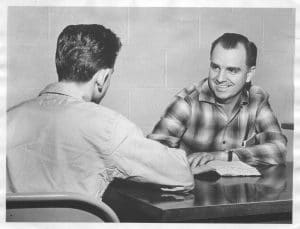Recreation. Baseball, basketball, ping pong, swimming, board games, hiking, etc.; recreation is a part of the Teen Challenge program. Why do we have recreation at TC? Do we have rec time to fill in empty gaps in the schedule ? Do we have rec time so students can relax and let off some pent-up energy? Do we have rec time so that students get some physical activity? Do staff use rec time to interact with the students on a more personal level? There is nothing wrong with any of these reasons, in fact, one of the goals of Teen Challenge is to help students become “physically well”. But what about the other four goals of Teen Challenge to help students become: “mentally sound, emotionally balanced, socially adjusted, and spiritually alive”? Does and should rec help to accomplish these goals? Is recreation a part of discipleship in Teen Challenge?
Consider some of the things that can be accomplished during and through a structured recreation time:
- Character. As mentioned in the last e-newsletter regarding PSNL and GSNL, students are required to set Personal Application Goals in the classroom, particularly with Character Qualities and Scripture Memory. These goals will very often have opportunity to be implemented during rec time.
- Social skills. It is important that the students learn to function socially without drugs. Learning to interact with others and have fun is a real challenge for some students. Often I would have a student who wanted to stay to themselves and not participate. After an honest discussion about the student’s feelings and the need to interact we would begin to involve the student in activities.
- Sportsmanship. I have had many conversations with students about the fact that they were probably not going to be a professional athlete at this point in life, so learning how to be competitive but keep the focus on Christian fellowship and being an example of Christ was most important.
- How to deal with difficult people. We have to admit that some people are just hard to get along with. During rec students will have ample opportunity to develop patience and tact with another person with an abrasive personality rather than “losing it”.
We are 100% responsible for our actions – no matter what the other person does or says. - Conflict resolution. The stress of conflict is often an excuse to use drugs and alcohol. Learning how to resolve conflict is a huge factor in helping a student develop character, social skills and maintain a life free from chemical abuse.
- Team work. This should be a focus of the games played at TC. Students must learn to not be self-centered. Students learn to work together to accomplish a task. In volleyball, after the serve, I required each team to hit the ball three times on a side before it could go back over the net. Team work!
- Servanthood: Encourage students to show the love of Christ by involving the insecure, withdrawn and unskilled. Pass the ball to them and cheer them on. Again, this is not about you becoming a professional athlete. It is about being Christian on the basketball court (or whatever game you are playing).
The staff must set the example We can tell them to do all the above but if we ain’t they won’t. That’s right, I said “ain’t”!
I had one staff that I had to let go because once every few weeks in basketball someone would be taken to the hospital with a broken nose. On the third trip to the hospital in only a few weeks, I knew that I had a staff member who was not only failing to control the students but who himself was taking his frustrations out on the court. (It probably didn’t help that he was irritated by his failed attempt at playing college ball because of a messed up knee.) Anyway, the point is. The staff member is a role model.
As you consider these things and more, I think we can very safely say that recreation is an important part of discipleship at Teen Challenge.
As Christ followers his character and Spirit should be evident in every part of our lives. There is no part – including recreation – where we lay our character aside. Truth is, that is where it really shows. As one of the first staff I met in TC 26 years ago used to tell the students, “You are no more spiritual than you are on the basketball court.” Less of me, more of Christ. On the basketball court? Yep!
Staff must be intentional about observing student behavior and conversation during recreation. Pull students aside during and after recreation to talk to them about these issues. Consistent instruction and correction given in a good spirit will help bring about change. Don’t forget to give the student a pat on the back when they do show positive change!
Think about it –
- Have you strategically developed a discipleship based recreation program that is part of your overall discipleship plan?
- Are staff trained in how to work with students during recreation?



